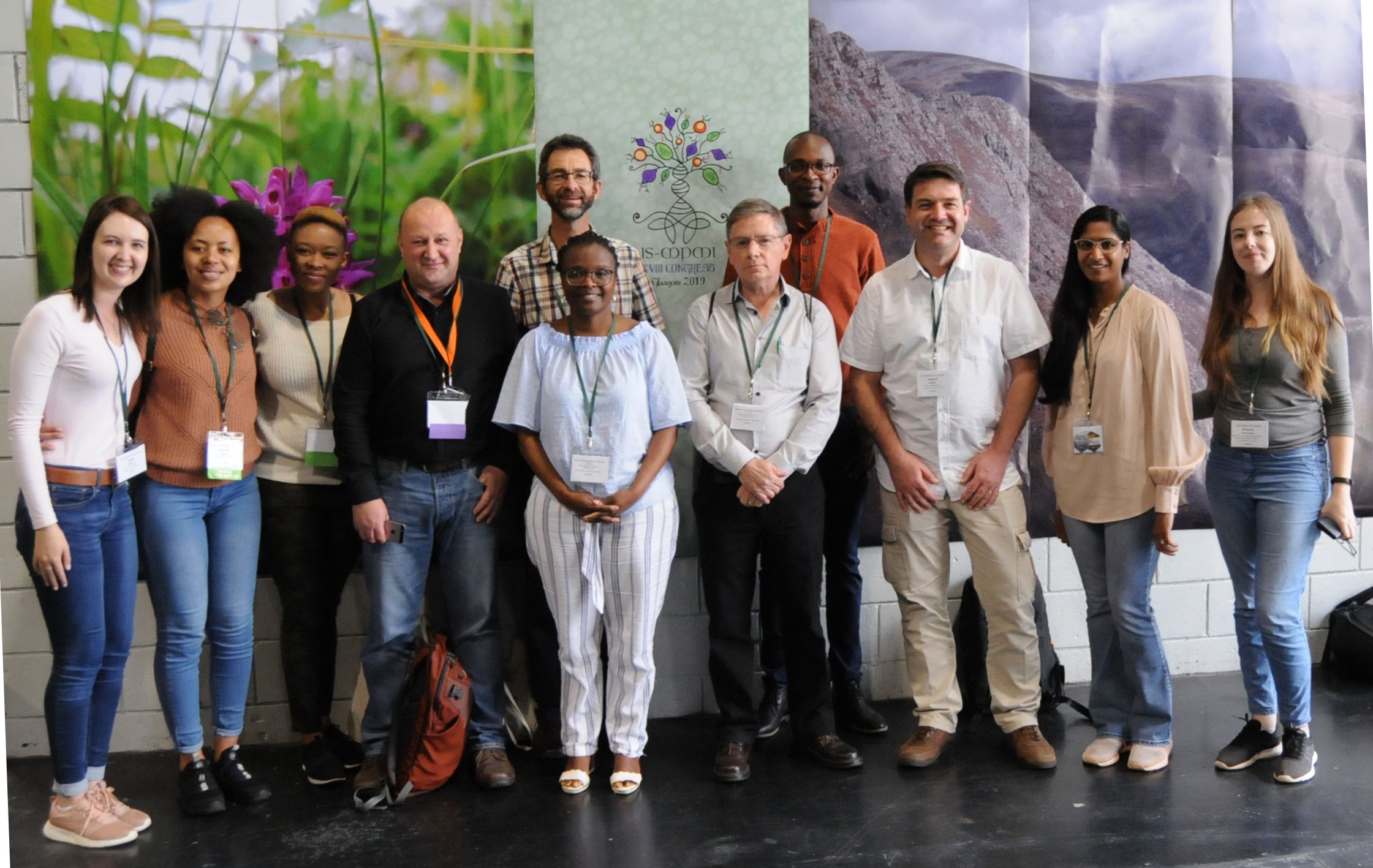FABIans attend the 18th Congress on Molecular Plant-Microbe Interactions (MPMI) 2019-08-01
The biennial Congress on Molecular Plant-Microbe Interactions (MPMI), hosted by the International Society for Molecular Plant-Microbe Interactions took place from 14-18 July in Glasgow, Scotland. The 2019 IS-MPMI XVIII Congress boasted 30 plenary speakers and 126 concurrent sessions. This meeting was attended by more than 1400 scientists from 52 different countries. Professor Paul Birch, an Extra-ordinary Professor at FABI and currently based at the James Hutton Institute and the University of Dundee, was the co-chair of this Congress. Eight additional FABIans were included in this world-class group of attendees. Here they had the opportunity to present the latest research conducted at FABI relating to molecular aspects of microorganisms’ interactions with plants. Three of these FABIans were awarded the IS-MPMI congress travel grant named in honour of Dr. Ko Shimamoto, who made notable contributions to the field of plant immunity.
One of the highlights of this event included the interactive participation amongst the attendees to identifying the top unanswered questions relating to molecular plant-microbe interactions. The most pressing concerns identified included: How to translate basic research into emerging crop plants?; How does abiotic stress, such as climate change, influence plant-microbe interactions? How do plants emerge with beneficial microorganisms while at the same time restricting pathogens? Many of these topics will be addressed in upcoming issues of the MPMI journal and at the next IS-MPMI Congress which will be held in 2021 in Jeju, South Korea.
Posters presented:
van Wyk S, Wingfield BD, van der Merwe NA, de Vos L, Steenkamp ET. RIP mutations an important driver of genome variation in Fusarium circinatum.
Flemington SK, Zwart L, Shuey L, Naidoo S. Evaluation and characterization of systemic resistance in forest trees: Eucalyptus grandis as a case study
Segal CA, Berger DK. Functional analysis of a Cercospora zeina effector using Agrobacterium transient assays.
Nkomo NP. PhoP of Pectobacterium carotovorum subsp. brasiliense (Pcb1692) represses T6SS and carbapenem production in planta.
Marais I, Theron J, Crampton BG, Berger DK. External RNA uptake by Cercospora zeina and Exserohilum turcicum and the possible development of RNA fungicides against maize yield limiting pathogens.
Petrova O, Gorshkov V, Osipova H, Daminova A, Moleleki L, Gogolev YV. Stress, resistance and virulence of pectobacteria.
Berger DK, Welgemoed T, Pierneef R, Sterck L, van de Peer Y. Maize lectin receptor-like kinase associated with QTL for resistance to grey leaf spot disease identified by de novo assembly of transcriptomes.


